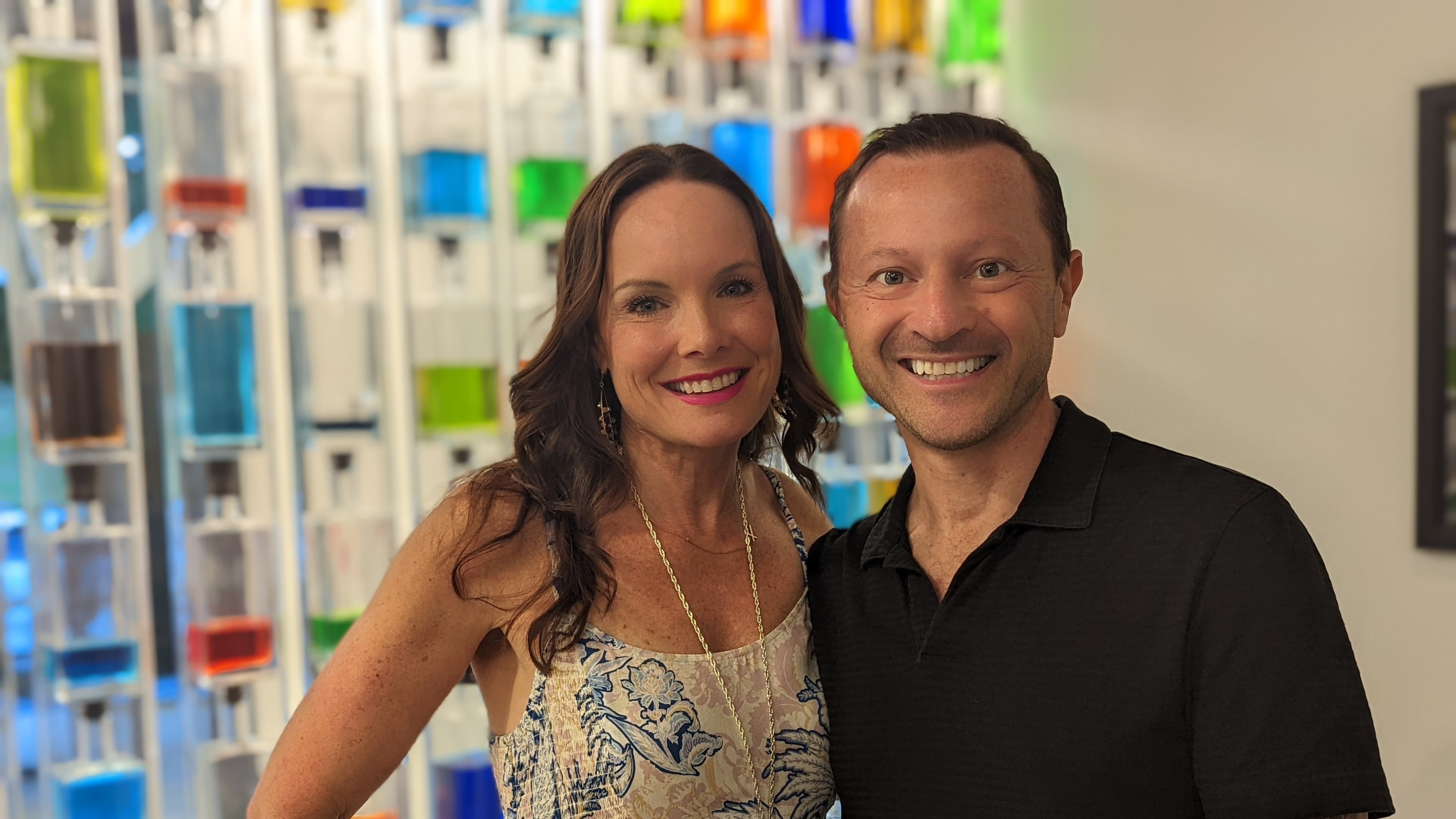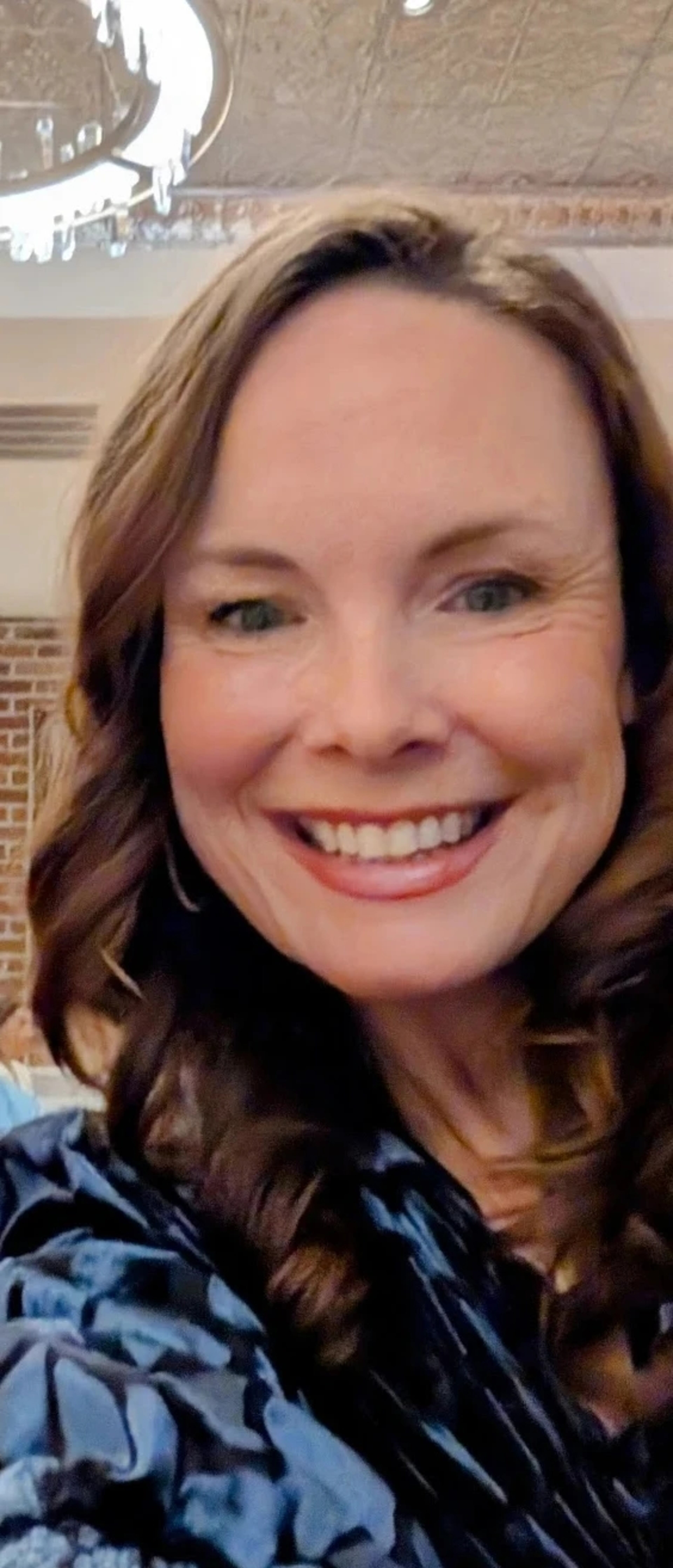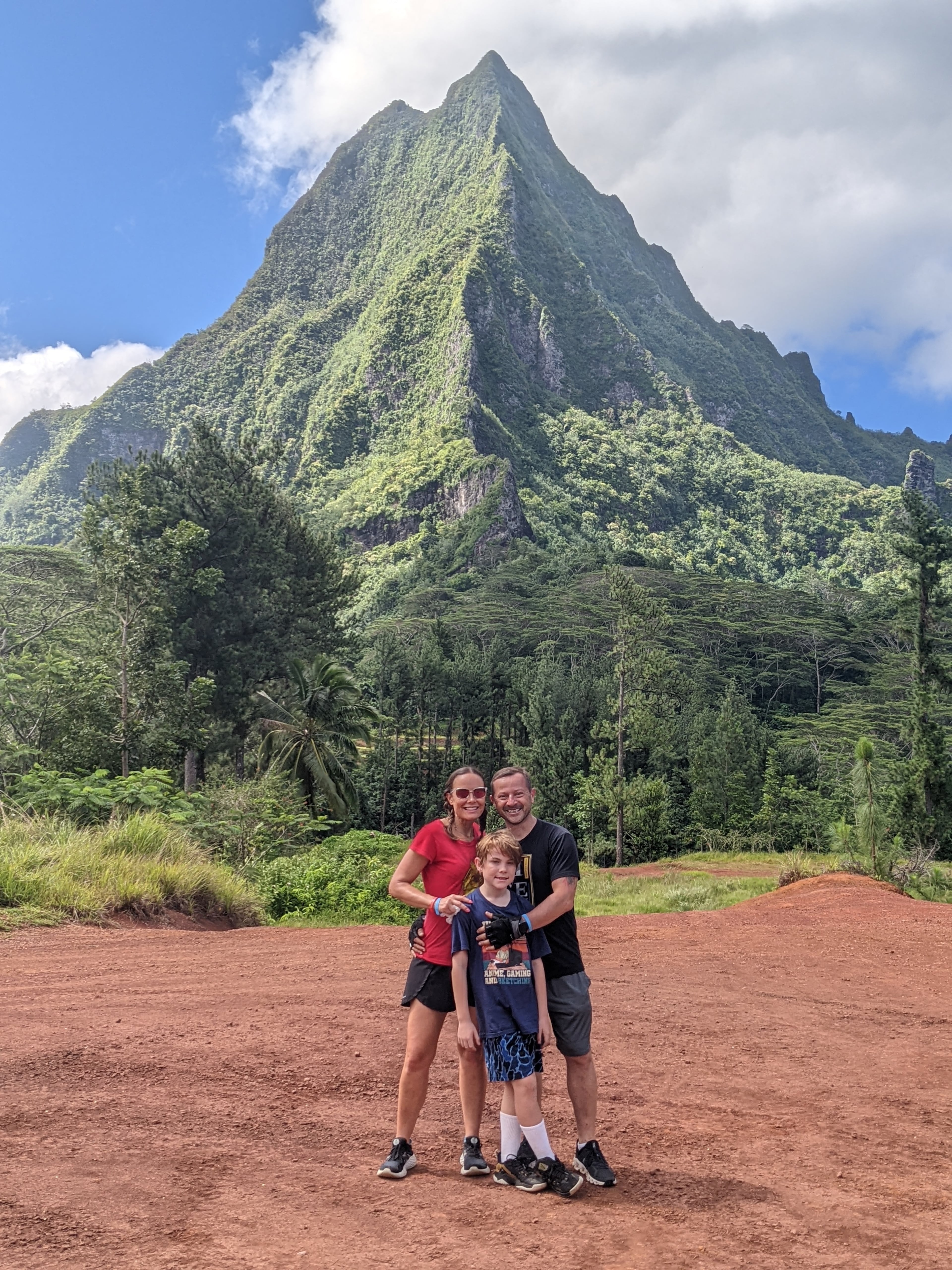My husband died of colon cancer. I’m on a mission to help others avoid this tragedy

My husband Kris was a jokester and adventurer who loved to laugh and soak up life. Our first date was even to go shark diving, and we lived our dream of traveling the world together.
Unfortunately, our family and life as we knew it were abruptly impacted in 2021, when our cancer journey began.
In May of that year, the U.S. Preventive Services Task Force issued new recommendations for colorectal cancer screening, lowering the age to 45 for people with an average risk of the disease. This also happened to be the same month that Kris, at 48 years old, began to experience a gurgling sensation in his stomach and went to see his doctor for a scan.
The results came back showing a mass on his colon and spots on his liver, with a diagnosis of stage 4 colorectal cancer.
The next step was completing a colonoscopy and biopsy, which showed that the cancer had started in his ascending colon and spread to the liver, sternum, spine, lymph nodes and inner walls of his abdomen. It also showed that he had a KRAS mutation, an aggressive mutation that can lead to uncontrolled cell growth and the development of cancer.
What followed was the difficult conversation with our son about Kris’s cancer diagnosis, the search for treatment and the unthinkable uphill battle before us.
Colorectal cancer screening can save lives
According to the American Cancer Society, colorectal cancer ranks second in cancer-related deaths overall and is the leading cause of cancer death in men younger than 50 years of age.

Despite these statistics, Kris remained a fighter and maintained a positive outlook throughout chemotherapy and numerous appointments. We continued to travel the world, and even in the darkest days, Kris never said, “Why me?” His cancer diagnosis provided an opportunity for him to help other patients who were scared and struggling.
Kris passed away on Feb. 20, 2023, surrounded by family, just as he had wanted. Since then, I’ve had the chance to reflect on our cancer journey. The experience has led me to become an advocate for colon cancer screening and early detection.
Around the age of 45 years old, Kris saw his doctor regarding blood in his stool, but was told that he was too young, and, without a family history of colorectal cancer, did not need a colonoscopy. Looking back, this was the first sign he needed to get screened. And a few months before he was diagnosed, his blood test results showed he was borderline anemic, which is not typical for men.
Colorectal cancer screening and early detection can save lives. If caught in its early stages, localized colorectal cancer has an impressive 91% five-year survival rate. Earlier screenings could have meant more trips and time with Kris — so now I want to help as many people as I can avoid the tragedy we went through.
The American Cancer Society released new data in April noting there have been 154,000 new cases of colorectal cancer already this year in the U.S. It estimates nearly 53,000 people will die because of colorectal cancer in 2025.
In Georgia specifically, the ACS estimated that 4,940 people would be diagnosed and 1,660 would die from colorectal cancer. In a recent survey, the top reasons Georgians gave for avoiding colon cancer screenings included perceptions of an unpleasant prep process, concerns about discomfort and fear or anxiety related to the screening.
Talk to your health care provider about early detection

Anxiety about an uncomfortable or unpleasant screening process — not to mention pushback from a physician — should not be barriers in the fight against this horrible disease. New, more convenient options, such as Shield, the first blood test for colorectal cancer screening that is FDA-approved and covered by both Medicare and VA Community Care, have made screening easier and more pleasant, helping to close the screening gap in Georgia and across the country.
I believe the best test is the one that gets done. My husband Kris did not have the screening options we have today, and with less invasive and more convenient methods, there is no excuse to wait.
I will keep telling our story. Not because it’s easy, but because it might help someone else. Kris’s legacy lives on in every life that could be saved through early detection.
If you are 45 or older, talk to your health care provider about which screening method is right for you. And if something doesn’t feel right, speak up. Push for answers. Do it for yourself and for the ones you love.
Elizabeth Sokolowski is an Atlanta resident and the widow of Kris Sokolowski, who tragically passed because of colon cancer. Elizabeth is now an advocate for colon cancer screening and early detection.


